
This has proven a somewhat monumental task, because the needs of the on-demand version are very different than those of the live class. In the live workshops, which are limited to eight students, everyone comes in with a two-three sentence description of their idea, and we work from there, adapting the material to what they’ve brought into class.
For the on-demand version, I started by trying to identify all the different ways there are into a story, a number that fluctuates in the realm of two dozen, depending on how finely I want to draw distinctions.
What I’ve done with each possible path is identify what it is, what it gives you as a starting point, things you will want to consider, possible pitfalls, next steps for fleshing it out, and a set of exercises (with basic and overachievers’ versions) to help explore the starting point. I finish, in what I am still worried may be an excessively egotistic move, by providing a story of mine that started in that way and some notes on its development from the starting point.
Here’s a recently finished example from the section on beginning with various fragments, specifically where to go when all you have is a scene and you’re not sure where it goes in the story (as opposed to knowing the beginning or ending of the story, which I cover separately).
What it is:
A scene is usually a moment in time that has come to you. It usually has strong visual elements, and something is usually happening, such as a battle, or has just happened in it (a battlefield after the fighting is done). It is probably something that would appear at a significant moment of a story and not be peripheral to it.
What it gives you:
- Everything but the plot. But actually, that’s not true. What is the main source of tension in the scene, what is the conflict that is driving things? That is probably a version of the overall plot.
- A scene gives you a strong slice of the world and all that is implicit in that, including history and culture.
- If characters are included in your scene, they are usually doing or have just done something more purposeful than just milling about. You have some sense of their occupation, their economic circumstances, and often some nuances of their relationship.
What you need to think about:
- Why would this scene matter? As noted earlier, it’s something that is significant to the story. Does it appear near the beginning and spark things into motion, or does it appear at the end and sum up the action of the story?
- What are the circumstances behind the scene? If it’s a visual splendor, there is usually some technology or magic underlying it and creating it.
- What is the context in which it’s being viewed? Who is seeing it and why are they there?
- What is striking about the image to you and how can you best convey that to a reader?
- Is your scene just some sort of natural vista? That’s going to be hard to develop something from. In that case, think about what might make that vista unusual or unexpected.
- Make it more than just a pretty picture. Something has to happen in a story and moments where there is just description slow narrative down drastically. If the camera is lingering on something, make it something riveting. Use interesting and lively verbs as well as paying attention to sentence length and paragraphing in order to counteract the slowing of the motion.
Possible next steps:
- Consider the viewpoint. Who is seeing the scene? What is their relationship to it? What do they know about it and what questions do they have about it?
- Write the accompanying dialogue. What’s being said in the scene, and why does it matter? Who is speaking and why?
- The moment may be brief or extended; generally the longer it lasts, the more it gives you. Think about what happens immediately before and after the scene that you have; should some of that be included in the story?
Exercises:
- Sometimes it’s helpful to expand the idea of the visual. How might you convey this scene in a graphic novel? Write it out as though it were a script. Overachievers: Write the entire story this way.
- Describe same scene with two different moods, preferably ones as different from each other as they can be, such as a joyous description of the scene versus a saddened or enraged one. Overachievers: Expand to 3-4 moods and/or combine several moods in a single description.
- Construct a mirror scene, a second scene in which many elements of the first are repeated, but different actions take place. Overachievers: Figure out where in the story your scene takes place and put your scene in a spot that would balance it in the story. For example, if your story is at the beginning, create one at the end, or vice versa. (If it falls in the middle, create something at either the beginning or end, but contemplate making the task even more complicated by doing both.)
Case study: Magnificent Pigs
For me the story “Magnificent Pigs” began with an image of its final scene, with the pigs flying away bearing Jilly’s bed into the night. Once I had that, I knew she was important, but also that she was not the protagonist. That would be whoever was watching her fly away into the night, which turned out to be her brother.
“Magnificent Pigs” is a good example of how, once you have a scene, you can begin to accrete details that flesh the story out. I had read about a recent art project that involved tattooing pigs; this became the way that they acquire their wings. A trip to the tattoo parlor with my friend Kris, who was getting a tattoo, lent some details for verisimilitude, and on the way back as we were discussing the story, she told me the anecdote about her mother telling her Charlotte was always alive in the book in order to console her (and gave me permission to use it in the story). To me, that’s a lovely little note, because of course it has a parallel — Jilly will also always be alive in the story.
This is an early story, which appeared in Strange Horizons, and was one of my SFWA qualifying sales. It appeared in audio form on Podcastle and inspired one of my favorite reviews, in which the reviewer talks about driving along with tears streaming down their face because they were listening to this story. That’s a heady thing for a writer and remains something I cherish.
Later edit: the class is now done and available online! Find it here.



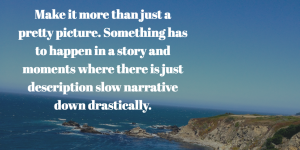


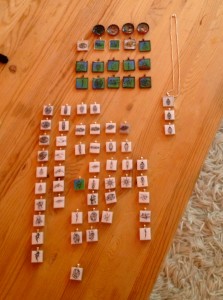
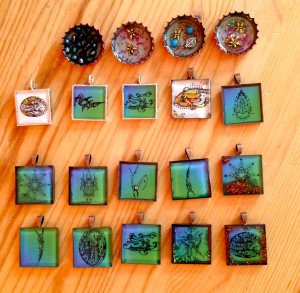
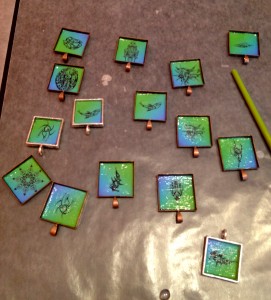
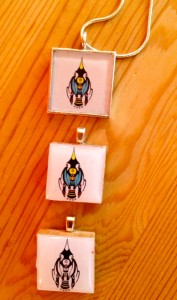



10 Responses
RT @Catrambo: More From Moving from Idea to Draft: https://t.co/ATSuFtQ7Hf
Kris Millering liked this on Facebook.
This is often hard for me. I have an idea or a setting but often characters or conflict to go with it. I still have some languishing settings waiting for a populace
Che Gilson liked this on Facebook.
Rob Sutherland liked this on Facebook.
Lori Deason liked this on Facebook.
Tee Tate liked this on Facebook.
John McColley liked this on Facebook.
What do you do when you have just a scene? https://t.co/F0Dwv0K8nu